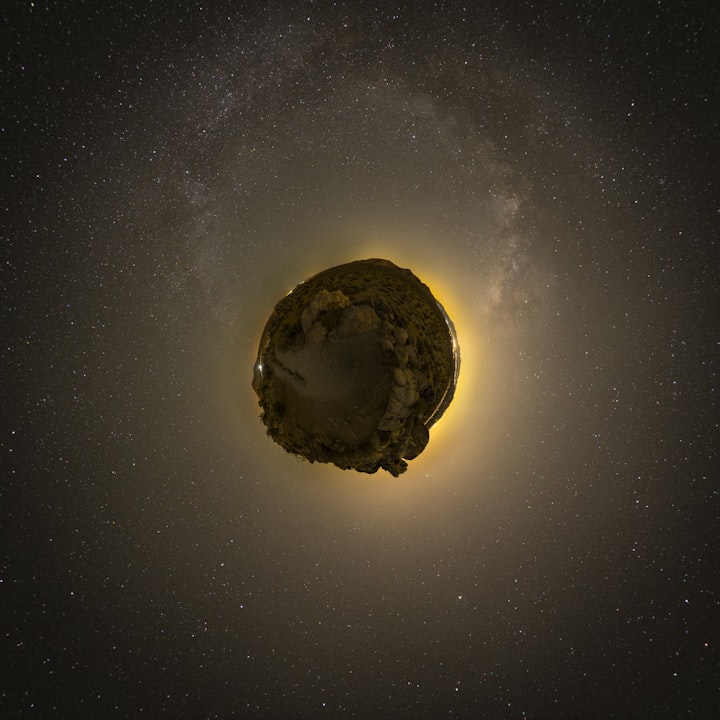
Alien life forms have long been a topic of fascination and speculation for humanity. From ancient myths and legends to modern science fiction, the idea of extraterrestrial beings has captured our imaginations for centuries. But what do we actually know about the possibility of alien life?
One of the most compelling arguments for the existence of alien life is the vastness of the universe. With an estimated 100 billion galaxies in the observable universe, each containing billions of stars and planets, the odds of Earth being the only planet to support life seem incredibly slim. Additionally, recent discoveries of exoplanets in the "habitable zone" of their star - a distance from the star where the temperature is just right for liquid water to exist on the surface - have further increased the likelihood of the existence of alien life.
The possibility of microbial life on other planets, such as Mars, is also a topic of ongoing research and exploration. In the past decade, several missions to Mars have found evidence of water on the planet, which is considered a key ingredient for life. Additionally, scientists have discovered microbial life in some of the most extreme environments on Earth, such as deep sea hydrothermal vents, suggesting that life may be able to thrive in environments previously thought inhospitable.
While the existence of microbial life on other planets may be possible, the likelihood of intelligent alien life forms is less clear. The Drake equation, developed by astrophysicist Frank Drake in the 1960s, attempts to estimate the number of civilizations in the Milky Way galaxy with which we might be able to communicate. However, the equation relies on several uncertain variables, such as the rate of star formation and the likelihood of intelligent life evolving, making it difficult to arrive at a concrete estimate.
Despite the lack of concrete evidence for the existence of intelligent alien life, many scientists and researchers continue to search for signs of extraterrestrial civilizations. The Search for Extraterrestrial Intelligence (SETI) program, for example, uses radio telescopes to listen for potential signals from alien civilizations. However, after decades of searching, no definitive signals have been detected.
The idea of alien life forms raises a number of important questions about our place in the universe and the potential implications for humanity. If we were to make contact with an alien civilization, it could greatly impact our understanding of the world and our place in it. Additionally, the discovery of alien life forms could also have significant implications for philosophy, religion, and politics.
Despite the many unknowns and uncertainties surrounding the topic of alien life, it remains a subject of ongoing research and exploration. From the search for microbial life on Mars to the search for signs of intelligent alien civilizations, scientists and researchers continue to push the boundaries of our understanding of the universe and our place in it.
HomeTechnologyScienceScientists are working on how to respond to aliens if we get contacted
Scientists are working on how to respond to aliens if we get contacted
Researchers have set up an international hub of experts to answer an important question—"What do we do if we come into contact with an alien intelligence?"
Science fiction movies paint a vivid picture of what would happen when we meet an alien civilisation. But what would we actually do if we find out that we are not alone in the universe? That is exactly that scientists at a new international research hub are preparing for, according to the University of St Andrews. The SETI Post-Detection Hub will be hosted by the University of St Andrews in Scotland and will be a coordinating centre for experts from across science and humanities to create impact assessments, protocols, procedures, and treaties that can be used in case we get in touch with an alien intelligence
“We need to go beyond thinking about the impact on humanity. We need to coordinate our expert knowledge not only for assessing the evidence but also for considering the human social response, as our understanding progresses and what we know and what we don’t know is communicated. And the time to do this is now,” said John Elliott, honorary research fellow at the University of St Andrews.
In conclusion, the possibility of alien life is a fascinating topic that has captured the human imagination for centuries. While we have yet to discover definitive evidence of extraterrestrial life, recent discoveries and advancements in technology have increased the likelihood of the existence of microbial life on other planets. The search for intelligent alien life forms, however, remains ongoing, with no definitive evidence found yet. Regardless of whether we ever discover alien life, the pursuit of knowledge about the possibility of extraterrestrial life will continue to shape our understanding of the universe and our place in it.





Comments
There are no comments for this story
Be the first to respond and start the conversation.